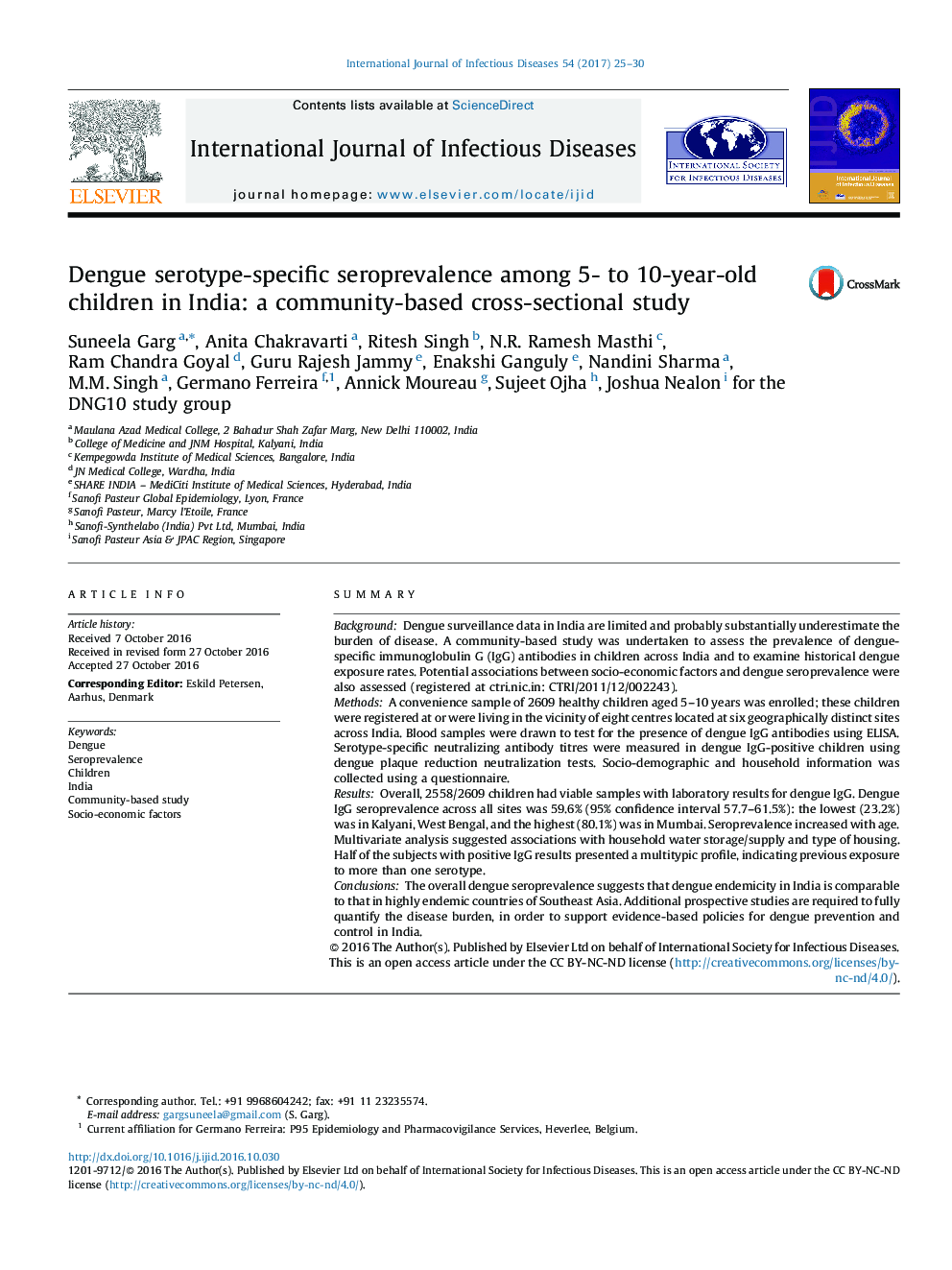| کد مقاله | کد نشریه | سال انتشار | مقاله انگلیسی | نسخه تمام متن |
|---|---|---|---|---|
| 5667237 | 1592039 | 2017 | 6 صفحه PDF | دانلود رایگان |
- Dengue is increasing in India, but empirical data documenting burden are very limited.
- A multi-site study found that 59.6% of children aged 5-10 years had been infected at least once.
- Nearly half had antibody profiles suggestive of more than one previous dengue infection.
- Antibodies against multiple dengue serotypes were identified at all eight sites.
- These data provide strong evidence for hyper-endemic dengue transmission across India.
SummaryBackgroundDengue surveillance data in India are limited and probably substantially underestimate the burden of disease. A community-based study was undertaken to assess the prevalence of dengue-specific immunoglobulin G (IgG) antibodies in children across India and to examine historical dengue exposure rates. Potential associations between socio-economic factors and dengue seroprevalence were also assessed (registered at ctri.nic.in: CTRI/2011/12/002243).MethodsA convenience sample of 2609 healthy children aged 5-10 years was enrolled; these children were registered at or were living in the vicinity of eight centres located at six geographically distinct sites across India. Blood samples were drawn to test for the presence of dengue IgG antibodies using ELISA. Serotype-specific neutralizing antibody titres were measured in dengue IgG-positive children using dengue plaque reduction neutralization tests. Socio-demographic and household information was collected using a questionnaire.ResultsOverall, 2558/2609 children had viable samples with laboratory results for dengue IgG. Dengue IgG seroprevalence across all sites was 59.6% (95% confidence interval 57.7-61.5%): the lowest (23.2%) was in Kalyani, West Bengal, and the highest (80.1%) was in Mumbai. Seroprevalence increased with age. Multivariate analysis suggested associations with household water storage/supply and type of housing. Half of the subjects with positive IgG results presented a multitypic profile, indicating previous exposure to more than one serotype.ConclusionsThe overall dengue seroprevalence suggests that dengue endemicity in India is comparable to that in highly endemic countries of Southeast Asia. Additional prospective studies are required to fully quantify the disease burden, in order to support evidence-based policies for dengue prevention and control in India.
Journal: International Journal of Infectious Diseases - Volume 54, January 2017, Pages 25-30
